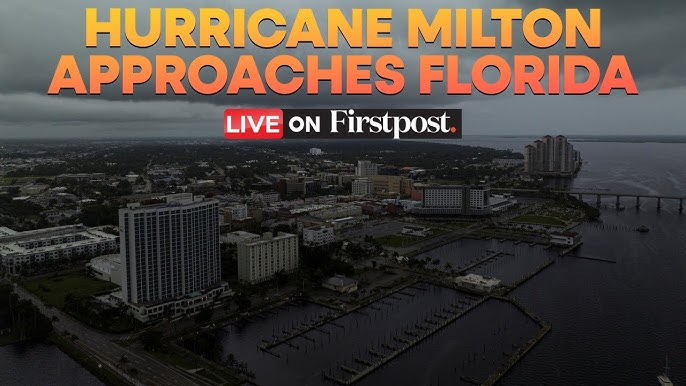In a recent online post, Indiana’s incumbent Attorney General Todd Rokita, broadcasted a claim that the Federal Emergency Management Agency (FEMA) exhausted its budget intended for aiding Americans during the 2024 hurricane season due to its immigration-related spendings. This notion of immigration draining the resources for disaster recovery, previously propagated by ex-President Donald Trump, has been proven incorrect. The misconstrued conversation pertained to FEMA’s capability to provision financial aid to the victims of Hurricane Helene, a storm which ravaged North Carolina and other southeastern states in late September. Meteorological forecasts have predicted a secondary threat, with Hurricane Milton, a category 5 storm, heading in the direction of Florida.
Rokita, affiliated with the Republican Party, is in the midst of his reelection campaign for the Attorney General’s office, with Democrat Destiny Wells as his opponent. On the 4th of October, Rokita presented to his audience a New York Post article addressing the FEMA funding fallacy. His message conveyed a level of shock towards the information that FEMA had openly admitted to its insufficiency of funds to support American citizens through the remaining Atlantic hurricane season, given that over $1.4 billion of their budget had been channeled towards addressing the migrant crisis.
Rokita’s post elucidated that FEMA claimed to lack the necessary finances to aid American citizens following over $1 billion in expenditures for non-citizens. Rokita expressed his disappointment and disbelief towards their reasoning of ‘accounting fault’. He stressed that all funds were sourced from taxpayer money. His post further reminded readers that every state is impacted by border policies, suggesting that this was a consequence of the Biden/Harris administration’s border management failures.
FEMA counters these assertions on their official website, confirming that the agency holds enough funds to cater to the ‘immediate response and recovery needs’ arising from emergencies like Hurricane Helene. The department encourages victims to apply for disaster relief and wholeheartedly dismisses claims that disaster funds are being funneled for border-control activities.
According to FEMA, their disaster response efforts and individual assistance programs receive funding through the Disaster Relief Fund, a fund specifically committed to disaster initiatives. It is clarified that not a single dollar from the Disaster Relief Fund has been moved to other non-disaster linked assignments. In an ABC’s ‘This Week’ program, FEMA Administrator Deanne Criswell assured the public of the agency’s preparedness to respond to Hurricane Helene, and vehemently dismissed the misinformation that FEMA’s fund shortage was due to the assistance provided to immigrants without legally established residency.
Prior to his South Carolina visit on October 2, Homeland Security Secretary Alejandro Mayorkas was asked by the press if he believed that President Joe Biden should mobilize Congress to pass legislation on disaster funding. Mayorkas responded that the current budget allocation was sufficient for addressing the immediate necessities. The Department of Homeland Security, which has jurisdiction over FEMA, confirmed that the agency is adequately equipped to manage the situation.
Mayorkas acknowledged the presence of another hurricane, warning that the resources on hand at FEMA might not be sufficient to handle the potential impact. He also pointed out that the funding being circulated via the continuing resolution passed the previous month by Congress, meant to fund governmental operations until December 20, couldn’t be considered a reliable resource for extensive disaster relief.
Addressing Hurricane Helene’s recovery efforts, he described it as a multi-billion dollar, multi-year recovery process. This highlights the colossal scale of the natural disaster and the resources required to mitigate its aftermath, once again emphasizing Mayorkas’s concern over the constitution of an ongoing stable source for disaster relief funding. Their focus on these disaster-related mandates, however, does not mean FEMA is channeling resources into other non-disaster operations.
Moving to the subject of ‘open border policies’, Rokita’s office has taken legal action against various policies introduced by President Biden’s administration concerning immigration. The particular lawsuit quoted in Rokita’s post represents a 2022 case that was directed against President Joe Biden and the Department of Homeland Security, aiming to challenge ‘illegal immigration’ and claiming damages ‘unique to the Hoosier State’. This lawsuit is presently in session before the U.S. District Court of Northern Indiana.
In May 2023, Rokita also spearheaded a joint lawsuit involving 18 other states against the Department of Homeland Security. This lawsuit was launched in response to a directive encouraging immigrants to explore ‘lawful pathways’ into the U.S, following the expiration of a CDC order enforced during the pandemic era.
Rokita contended in response to the lawsuit that the federal government’s proposal would not curb illegal immigration, expressing skepticism over the effectiveness of such guidelines. As of the latest update in September, this lawsuit continues to be scrutinized by the U.S. District Court of North Dakota.


